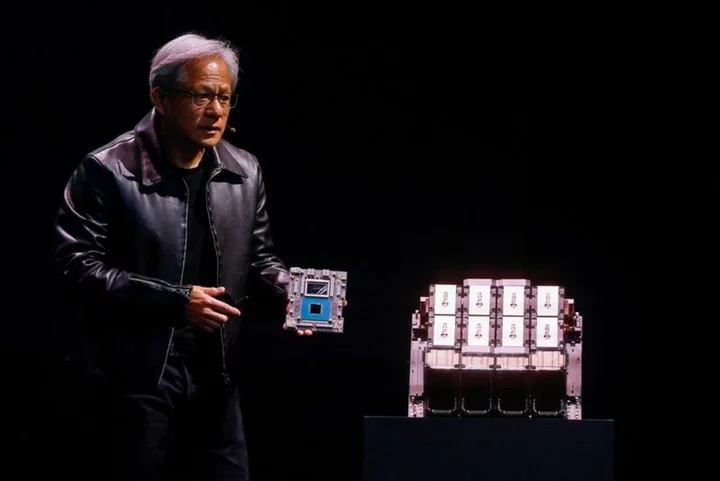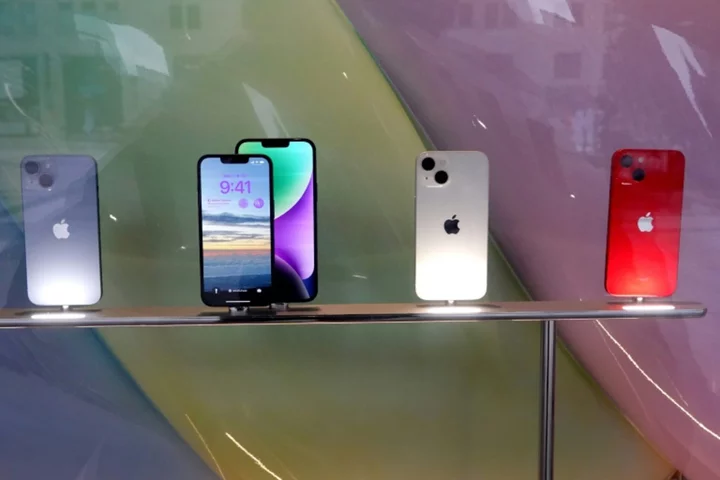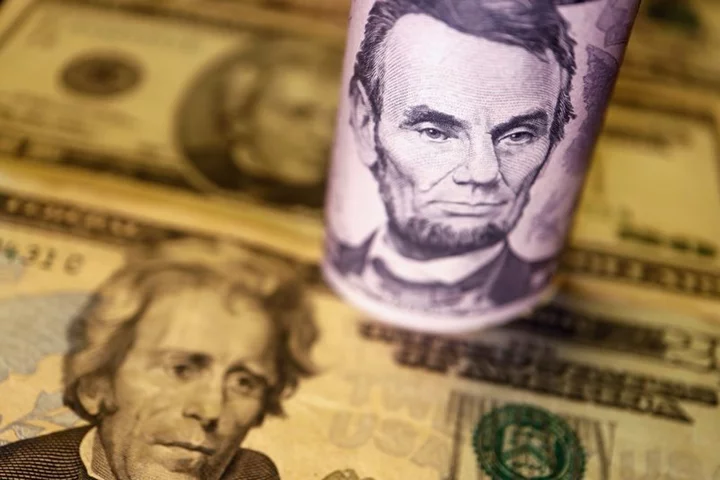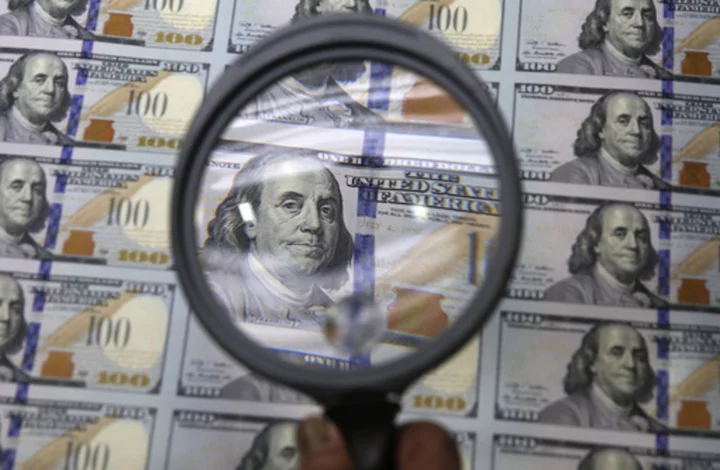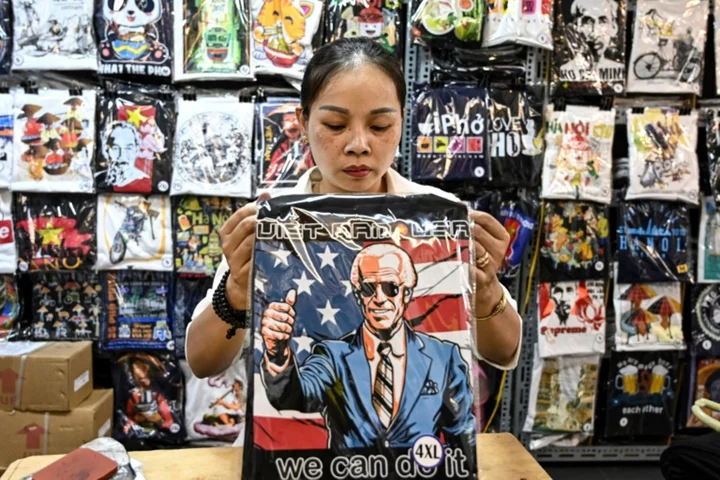By Yuvraj Malik, Samrhitha A and Stephen Nellis
Jensen Huang, the chief of chipmaker Nvidia Corp, has joined an elite list of tech executives to head a company worth $1 trillion.
Even more unusual is that Huang, 60, is only the second U.S. CEO after Amazon.com Inc's Jeff Bezos, who helmed the retailer until 2021, to hit such a milestone for a company they co-founded.
Nvidia shares have been on a tear, rising on stellar sales projections from a boom in artificial-intelligence workloads and components. Since the launch of OpenAI's ChatGPT on Nov. 30, 2022, Nvidia's value has ballooned from roughly $420 billion to its current level.
The company's pole position in AI is a decade-and-a-half in the making. Huang was born in Taiwan but moved to the United States as a child, earning engineering degrees at Oregon State University and Stanford University. In 1993 he founded Nvidia along with Curtis Priem and Chris Malachowsky, securing backing from Silicon Valley's Sequoia Capital and others.
Its first big hits were specialized chips to power high-intensity motion graphics for computer games called graphics processing units (GPUs).
By the mid-2000s, Huang and his team realized the chips could be used on more general computing problems and released a software platform called CUDA to allow software developers of all stripes to program Nvidia chips.
AN EARLY BET
That kicked off of a wave of new uses, including for cryptocurrency. But Huang recognized that university labs were using his chips for work in AI, a niche n computer science that held promise of powering everything from virtual assistants to self-driving cars.
At the time, the field was almost forgotten in one of the periodic downturns in funding interest that its practitioners refer to as an "AI winter." Researchers lamented they would never have the computing power to bring their ideas to life.
Since then, Nvidia released a parade of hardware and software tools specifically for those AI researchers to create massive computing systems built out of tens of thousands of Nvidia chips.
The bet paid off. Nvidia's data center revenue more than doubled in the two years through fiscal 2023 ended January, while its current-year total sales are expected to increase by 60% year-over-year from the new demand for AI infrastructure.
VANQUISHING INTEL
Other than its initial focus on gaming processors, Nvidia also differentiated itself by outsourcing its silicon manufacturing to partners including Taiwan Semiconductor Manufacturing, which helped Nvidia focus on designing and reducing the time to market for more advanced chips.
That approach - called a "fabless" business model in the chip industry because companies do not own their own fabrication facilities - has helped Nvidia grow to eight times the market value of Intel Corp, which has struggled to compete while both designing and manufacturing its own chips.
Many of Nvidia's competitors also outsource manufacturing. But Huang's early of embrace of AI - stemming from his experience working at chip companies LSI Logic Corp and Advanced Micro Devices Inc before co-founding Nvidia - made him a key partner to many of today's hottest startups.
Some of those people remember how Huang supported the field back when they were unknown academic researchers.
"He has helped enable a revolution that allows phones to answer questions out loud, farms to spray weeds but not crops, doctors to predict the properties of new drugs - with more wonders to come," AI entrepreneur Andrew Ng wrote of Huang in Time magazine when the latter was named one of the 100 most influential people by Time in 2021.
Last year, as ChatGPT made a big splash, technology firms from Alphabet Inc to China’s Baidu Inc rushed in to create new AI applications, bringing more hardware business to Nvidia.
As companies further adopt AI, Nvidia could be one of the key beneficiaries.
"In the future, every single major company will also have AI factories, and you will build and produce your company's intelligence," said Huang at the Computex trade show in Taipei on Monday, where he also announced new Nvidia products and partnerships.
(Reporting by Yuvraj Malik and Samrhitha Arunasalam in Bengaluru and Stephen Nellis in San Francisco; Editing by Matthew Lewis)

